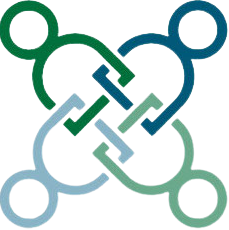Centering Women’s Experiences
Surely I’m not the only one who has noticed that higher education community engagement spaces are often dominated by women. While it may be evident anecdotally, it requires some digging to find evidence in the literature. However, one study made it clear that women are practicing community engagement with greater intensity and to a greater degree than men (Doberneck, Glass, & Schweitzer, 2011). If this is true, why is the scholarship of engagement void of research centering women’s experiences and feminist perspectives?
We have founding pioneers, like Jane Addams and Amanda Labarca, who used feminist practice to develop the community engagement field. There is also a rich history of engaged scholars using feminist theory in their research, as demonstrated in the new book, Public Feminisms. And it is easy to find robust research on women’s experiences in higher education, generally. The Journal of Women and Gender in Higher Education is a great starting place. However, research about community engaged scholars, specifically, has not attended to women’s experiences, despite their over-representation in the field.
In 2020 I set out to write a dissertation about community engaged scholars’ experiences with institutional support, without consideration of demographics. However, the data was loud and clear about gender as an influential factor in their experiences and could not be ignored.
The women in my study described the need to be self-sufficient and resilient in spite of a lack of support. They experienced barriers as a result of their role in their families, they were marginalized in their departments, and felt exclusion and isolation on campus. I heard things like, “I don't know if there is a man who would have taken my job,” and “women always get the short end of the stick.” Generally, they expressed a need for institutional support that accommodates relationship building and facilitates a sense of belonging in their work setting.
This unanticipated turn in my data analysis sent me on a deep dive into feminist theory and I began to read my data in a whole new way. Through a feminist lens, I saw that women were not only approaching their community engagement work differently, but they were facing unique barriers in their institutions, departments, and disciplines. All the while, they persisted. Indeed, women’s experiences are different.
I searched the community engagement research high and low for larger studies, any studies, that investigated women’s experiences as community engaged scholars. Outside of two dissertations (Ward, 2010; Plaxton-Moore, 2021) that ultimately provided the inspiration and foundation for my work, I have so far found none.
It has become clear to me that women often carry the weight of community engagement for their institutions, yet the institutions are not recognizing and responding to their unique needs with regard to support. More nuanced support for women could lead to even stronger fulfillment of an institution's aspirational missions. At the same time improving the experience for these scholars who are quietly holding up the institution’s history and reputation for community engagement.
While we continue to grow the body of research about women’s experiences in this field, I would challenge community engagement leaders and those in faculty development roles to reconsider the typical one-size-fits-all approach to supporting community engaged scholars. The emerging evidence indicates undifferentiated forms of support are missing the mark for women.
Emily Phaup, Ph.D., is the Professional Development Manager for Campus Compact and leads the Northwest 5 Consortium for Community Engaged Learning. She can be reached at ephaup@compact.org.

